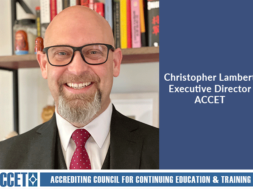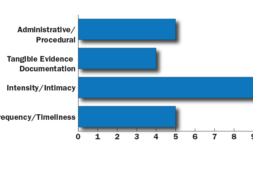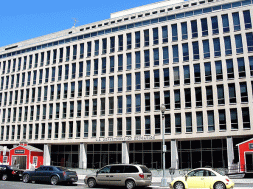
ACICS Provides Additional Information After HELP Hearing
Interview with Albert C. Gray, Ph.D., President and Chief Executive Officer and Anthony S. Bieda, Vice President of External Affairs, Accrediting Council for Independent Colleges and Schools (ACICS)
On June 17, 2015 the Senate HELP Committee held a hearing on Reauthorizing the Higher Education Act: Evaluating Accreditation’s Role in Ensuring Quality. Panelist included Peter T. Ewell, Ph.D., Vice President, National Center for Higher Education Management Systems, Albert C. Gray, Ph.D., President And Chief Executive Officer, Accrediting Council for Independent Colleges and Schools, George A. Pruitt, Ph.D., President, Thomas Edison State College, Anne D. Neal, President, American Council of Trustees and Alumni.
The following is an interview with ACICS. Dr. Gray and Mr. Bieda discussed the hearing and supplemental information submitted following the hearing, which is included after the interview.
Why did you appear before the Senate HELP Committee?
The Accrediting Council for Independent Colleges and Schools was invited by the HELP Committee to appear. We feel ACICS can be a valuable source of information on accreditation, particularly in the context of the reauthorization of the Higher Education Act. Accreditation has been recognized as a key element to that reauthorization. ACICS had good information to contribute and appreciated the opportunity to testify. Also, we have a duty to contribute to this conversation through sharing our expertise. Those are principle reasons ACICS testified.
During the hearing questions were raised regarding the demise of Corinthian Colleges, Inc. Was ACICS the only accreditor of CCi?
No, Corinthian was a large, multi-campus, corporate higher education institution. It had several accreditors, depending on the location and the nature of the programs. Two national accreditors, ACICS and the Accrediting Commission of Career Schools and Colleges (ACCSC), assured the quality of the Everest Institutes and Colleges. CCi also owned colleges accredited by two regional accreditors and numerous programmatic accreditors. It is important to note that ACICS continues to accredit many Everest campuses now owned by the Zenith Education Group.
Also, all of the states in which CCi operated had state higher education agencies with oversight responsibility; the U.S. Department of Education had oversight responsibility. In a non-educational context, CCi was overseen to some extent by the SEC, the Consumer Financial Protection Bureau and various state attorneys general.
So, there were many entities involved in overseeing CCi?
Yes, numerous agencies had oversight responsibility in various areas. Certainly ACICS is only one of many.
ACICS is recognized by the Department of Education. As such, is one of the recognition standards that ACICS has and follows a due process structure?
Yes, and it is a very important standard. The Department holds us to it rigorously in our recognition reviews. It is an important part of accreditation because it prevents decisions from being made on an arbitrary basis or on a basis that does not allow for the schools to respond or take corrective action. Due process provides an important element of quality improvement, which is the ability to look at a problem, develop a solution and implement that solution. It ensures that accreditation does not unjustly place a sanction on a school if the facts do not support that sanction.
Therefore, even though ACICS was aware that some agencies were investigating Corinthian, it would not have been appropriate or legal under your recognition to just remove their accreditation based on allegations, without following due process.
That is true; under our recognition it would not have been appropriate to take a negative action on the basis of allegations that have not been investigated and borne out in fact as determined by the Council.
What do you rely on to assess the financial stability of the school?
As part of ACICS accreditation, we require an audited annual financial report from all institutions that we review and analyze. The benchmarks we look at include profitability, current ratio, debt to equity ratios – standard benchmarks of financial health and sustainability. The ACICS Financial Review Committee looks to see any weakness. If they see some indicators of financial stress, they will require quarterly monitoring, a financial improvement plan or both. If things do not improve within a reasonable period of time, that can result ultimately in a show-cause directive or a withdrawal of accreditation based on financial risk.
The Council makes decisions based on what they deem to be reasonably secure numbers. If they have reason to think the numbers show risk, they will apply an extensive monitoring process which has, in the past, shown weakness in some institutions. ACICS has required numerous financial improvement plans and in some cases have issued show-causes orders. We feel fairly certain that there are some institutions that have been able to turn around, or make adjustments, that enable them to continue to operate. That is the primary purpose of reviewing financial data. ACICS is not capable, nor do we have the expertise, to do “scenario analysis,” looking at the “what if’s” under unpredictable situations such as the Department of Education restricting cash flow on an institution for reasons we cannot anticipate.
Because the required financial reports are based on audited financials, there is an expectation of veracity in the data. If the school is required to submit quarterly reports or a financial improvement plan, the council also requires a submission of a teach-out plan: the contingency that the school will at some point cease operation gets factored into the considerations. We required and received outlines of campus closure and teach out plans from Corinthian nearly a year ago. CCi had submitted the outlines for our review. ACICS was going back and forth with CCi to require more meat on the bones; those discussions occurred all the way up until CCi ceased operations.
Was there any advanced notification from the Department regarding Corinthian’s access to Title IV funds being cut off last June?
It definitely came out of left field. We were not given any kind of prior notification. Remember this process did not come through ACICS contacts at the Department. We work closely with the Accreditation and State Liaison division. But other arms of the Department, where this action originated, did not put the accreditors in the loop beforehand. We typically hear about these things first from the school or the news media.
Why did you provide the follow-up letter to Chairman Alexander and Ranking Member Murray?
ACICS was invited by the committee to submit supplemental information. We felt that the hearing was dominated by rhetoric, so we wanted to add facts to the record, which we think will be helpful to the committee in working on the accreditation element of the Reauthorization of the Higher Education Act.
Is there anything from the letter to Chairman Alexander and Ranking Member Murray you would like to discuss?
I would like to emphasize that the process ACICS has in place is a very sound accreditation process. It is a good process and it was applied throughout the Corinthian events. The data in the summary response is on our website (See letter after interview for details). ACICS had been looking at Corinthian very carefully. We were fully aware of the allegations and had reviewed the information relating to them through our adverse information process. We watch these issues carefully to see if they develop content that merits action. That review was underway with Corinthian.
There were 118,000 students enrolled at Corinthian when this situation unfolded. ACICS had 47 complaints in four years, which calculates to approximately one complaint per campus per year. We acted on every one of those complaints and most of those complaints were resolved at the institution level. None of this information was really apparent based on the testimony during the hearing. ACICS thinks that message needs to get out.
Can accreditation be improved? Yes, ACICS is in the quality improvement business. Our council meets every February with the specific purpose of reviewing standards and requirements systematically, and looking at where we need to improve them, where they can become more secure. We are constantly looking at ways to improve. Is the process ineffective as was characterized at the hearing by some? No, absolutely not. In fact, it is a very good system. I think it is probably the best system. Peer review is proven in many professions as the best system for quality assurance. We will continue to defend it as such.
Is there anything in closing that either one of you would like to add or is there anything we did not ask you that we should have?
Some characterizations of CCi’s fate talk about its collapse. Obviously from the corporate standpoint, the final chapter was a disaster. But the real tragedy should focus on the 4,000 students who were displaced in California and New York. Higher education is never well-served when students are forced out of the school without completing their program. However, nearly 90,000 of Corinthian’s students continue their education under Everest campuses owned by Zenith. They continue their education uninterrupted. They were given a choice that if they did not want to continue under those conditions, they would get a full refund. So it is not really accurate to characterize this as a horrendous disaster from a standpoint of the students when the vast majority, 90 to 95 percent were treated and accounted for and continue their education under different ownership.
The following is a copy of the letter ACICS provided to Chairman Alexander and Ranking Member Murray on June 30, 2015
Dear Chairman Alexander and Senator Murray:
ACICS appreciates the opportunity to appear before the Senate HELP Committee on June 17, 2015. We hope the information provided will help the Senate clarify and strengthen the role of accreditation in the Higher Education Act. As a supplement to the information provided in writing and in person, ACICS offers additional perspective below for the record.
ACICS acknowledges the intense interest of Congress in the current state of post-secondary education, and the discipline of quality assurance that is intended to protect students and taxpayers. The demise of a post-secondary institution is always a source of great distress and displacement, particularly for the students. To the degree the accrediting community, the U.S. Department of Education and appropriate state authorities can collaborate on reducing the incidence of student displacement, ACICS welcomes all constructive ideas. The Council takes its responsibility very seriously, and is committed to improving its effectiveness on behalf of students.
Questions were raised at the hearing regarding the bankruptcy and closure of Corinthian Colleges Inc. (CCi). The limited time and constrained format did not allow ACICS sufficient opportunity to fully answer all of those questions. The information below is offered in that spirit.
Four CCi campuses accredited by ACICS (three in California, one in New York) before revocation on April 27, 2015, served approximately 4,000 students. More importantly, more than 90,000 thousand students enrolled at 37 campuses sold to Zenith Education Group (ZEG) and accredited by ACICS continue today in their studies under a valid grant of accreditation and the approval of state and federal authorities.
To re-emphasize the oral testimony, all of the 56 campuses owned and operated by Corinthian and accredited by ACICS had their accreditation intact up until the campuses were either sold or ceased operations. All had been subject to at least one full site review between 2012 and 2014. The site reviews found most of the campuses to have few if any quality issues; some had several quality issues and were subject to deferrals and other sanctions pending their demonstration of full compliance with Council standards.
In addition, ACICS’s review of student satisfaction data indicated satisfactory performance by most, if not all, of the campuses.
Students currently enrolled at campuses operated by ZEG have been given the opportunity to continue with their current program, transfer to a different program without financial hardship, or terminate their enrollment and receive a refund. As is the case for every change in ownership of an ACICS-accredited college or school, a team of senior officials from ACICS will review the administrative and academic capacity of ZEG’s corporate headquarters this summer. This requirement is applied consistently within six months of any change of ownership. In addition, every ZEG campus will be visited in 2015 for quality assurance by experts in post-secondary education.
In acknowledgement of expressed sentiments, ACICS standards, policies, and program of quality review are based on expectations of honesty and integrity in relations with students, education quality that enables completers to pass required licensure exams, and institutional effectiveness that leads to employment. More than 25 explicit standards in the ‘ACICS Accreditation Criteria’ address these dimensions of integrity, and the requirements are tested through more than 50 discrete questions that must be answered and supported through interviews, observations and documents at each campus during each full team review.
ACICS has not concluded its thorough review of the validity of the allegations of misrepresentation contained in numerous investigations by state attorneys general. The evidence available has been general and broad, lacking specificity regarding time, place, individuals and circumstances. Evidence of that specificity is necessary in order for ACICS to reach an informed and considered decision regarding the institutions’ compliance with standards of integrity; relations with students including recruitment; advertising and misrepresentation; and public disclosures. In total, ACICS applies more than 91 standard questions regarding those topics at each campus during each full team review.
Inquiries and investigations by state attorneys general regarding the relations with students at CCi campuses began in December 2012. During the next two and half years, ACICS was notified of, tracked and analyzed open inquiries by state AGs in 15 states. In every case, ACICS required CCi to provide written evidence of their cooperation with the inquiries and any final determination. In all cases, those inquiries were in the discovery phase as of April 27, 2015.
ACICS was meticulously tracking and analyzing student complaints and adverse third party information before, during and after the U.S. Department of Education applied conditions to the company’s federal student aid disbursements beginning in June 2014. The pattern of student complaints has substantial weight with the Council, because accreditation actions that enhance the student experience are a high priority.
An analysis of those complaints indicated that for the four years preceding the demise of CCi, ACICS received less than one student complaint per campus per year.
The analysis also shows that those complaints primarily focused on three issues: financial aid (disputes about account balances), faculty issues, and lack of externship sites. About two-thirds of the complaints concerned the first category. Most of the complaints did not merit action by ACICS because they did not relate to a specific quality assurance standard, or the school was able to demonstrate compliance with ACICS accreditation criteria. Direct surveys of students indicated general satisfaction with the education provided, and a willingness to recommend the institution to others.
Determinations of institutional quality and integrity by Council are based on material information sources and methods of inquiry. Those sources are augmented by information provided by students, faculty, staff, and third parties, including the news media, plaintiff’s attorneys and state consumer authorities, such as attorneys general. None of those sources of information are necessarily decisive by themselves in making a thoughtful and comprehensive evaluation of the institution. Rather, the Council takes all of those into consideration, applies its own judgement and experience, follows the required due process protections and makes a final determination.
Schools are required to include in their Institutional Effectiveness Plan goals for employer satisfaction and mechanisms to survey employers periodically. Expert evaluators scrutinize the plan, as well as data collected and analyzed by the institution to make sure that information from the employer community is shaping educational programming. In addition, each program is required to establish a community outreach mechanism, such as a program advisory committee, that solicits from the workforce community its emerging needs and requirements.
One of the conclusions expressed was that CCi “failed its students” in terms of financial stability, in terms of educational quality (as measured by Cohort Default Rate (CDR), and price of attendance. ACICS had diligently reviewed audited financial statements from CCi for each of the preceding four years and found no evidence of system wide financial instability. CCi was subject to additional monitoring and reporting at the corporate level by the Council in part due to the conditional participation in Title-IV programs imposed by the Department.
Under the financial monitoring requirement, CCi developed and submitted for ACICS’s review a teach-out plan to protect the interests of currently enrolled students. When 37 campuses were sold to another organization, the requirement of teach-out plans to serve those students was rendered moot. However, CCi did not fulfill the teach-out requirements for the four Everest campuses which closed in late April; the Council will review at its August 2015 meeting the degree to which students were displaced by the sudden cessation of operations and decide appropriate sanctions to apply to members of the Corinthian leadership team.
Regarding the repayment of loans by students, none of the Everest Colleges had student 3-year Cohort Default Rates (2014) in excess of 30 percent, the rate at which schools are in jeopardy of losing their Title-IV eligibility. This CDR information is provided independently to ACICS by the U.S. Department of Education.
ACICS’s standard process regarding loan repayment performance is to review the CDR rates of all institutions every year. Schools with a default rate above the Department’s threshold are required to submit an improvement plan subject to Council review. The type of students that member institutions serve – many come from disadvantaged socio-economic backgrounds or households – contributes to higher rates of loan default. ACICS is unaware of any evidence that institutions with higher CDRs are necessarily of lower quality than institutions with lower CDRs; ACICS is aware of numerous studies that show CDR and demographics of the student population to be directly correlated.
Finally, ACICS has developed no standards regarding the prices charged to students by member institutions. Nor has ACICS imposed maximum tuition rates at member institutions. Regulating the cost of attendance is clearly beyond the authority of accreditation and outside the purpose of quality assurance. However, as offered in ACICS’s written testimony, the Council has a direct interest in evaluating the value component of the price/value proposition through its program of quality assurance. The Council will continue to refine and enhance its methods of review to ensure that students attending member institutions realize the greatest possible benefit for their emotional, spiritual, intellectual, temporal and financial investment.
To summarize, the primary role of ACICS is to assure quality and promote excellence. A secondary role is to ensure institutions adhere to minimum standards of quality and integrity. When an institution falls below standards, it is subject to sanctions, including deferrals, additional reporting, show-cause directives, probation and ultimately loss of accreditation. The chart below reflects how frequently ACICS accredited institutions have faced sanctions and penalties:
In conclusion, more than 90,000 students enrolled at ZEG campuses accredited by ACICS continue in their studies under a valid grant of accreditation and the approval of state and federal authorities. Whatever deficiencies of accreditation have been enumerated, the facts indicate that while ACICS continues its efforts to improve, accreditation is working and performing the job it was assigned by the Higher Education Act. ACICS welcomes the opportunity to respond to any additional questions or inquiries you may have.
Sincerely,
Albert C. Gray Ph.D., President and CEO
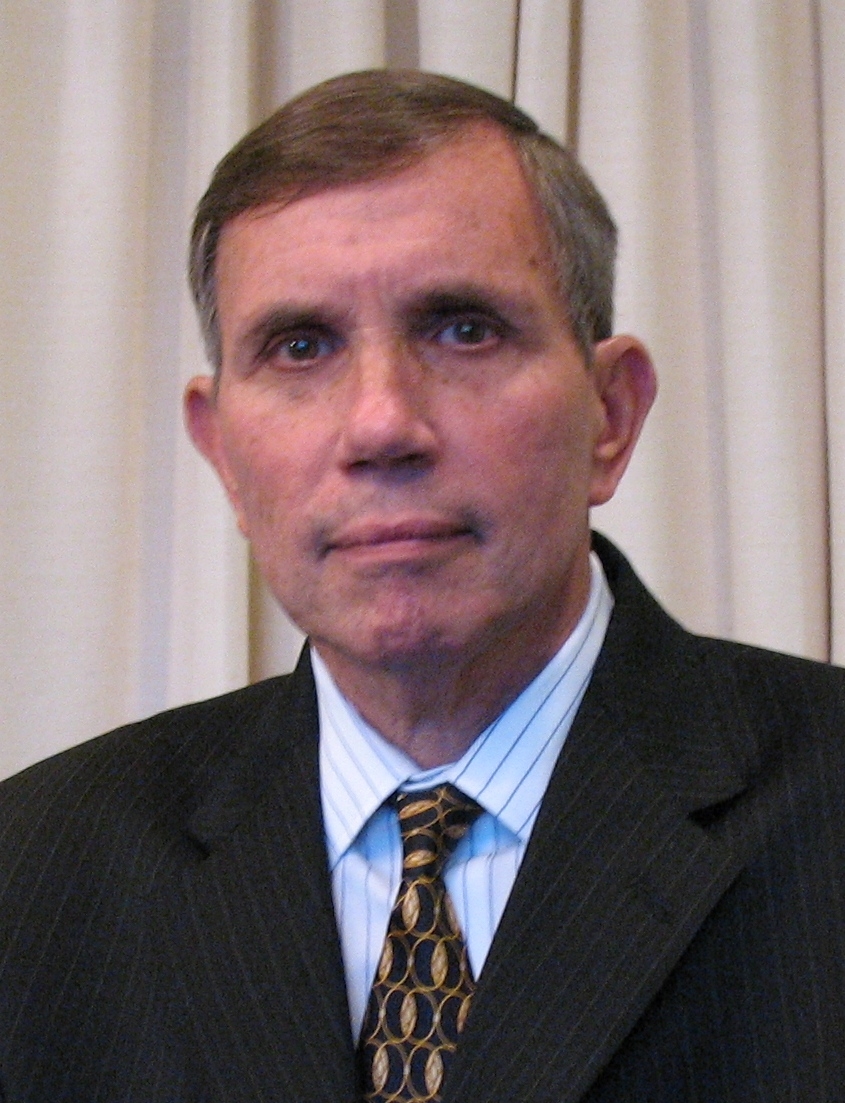
Dr. Albert C. Gray was appointed President and CEO of ACICS in December 2008 by the ACICS Board of Directors. Dr. Gray has more than 25 years experience directing accreditation, professional and technical membership programs; including most recently as the founding executive director and CEO of the Public Health Accreditation Board. He is a former CEO of the 50,000 member National Society of Professional Engineers, and has served in various management and consulting capacities with national engineering firms since 1972. Dr. Gray has been a leader in the design and implementation of a number of accreditation and certification programs including accreditation of public waters systems, high risk environmental management systems, local and state public health departments, and higher education programs. Dr. Gray earned undergraduate and graduate degrees in engineering at Rensselaer Polytechnic Institute.
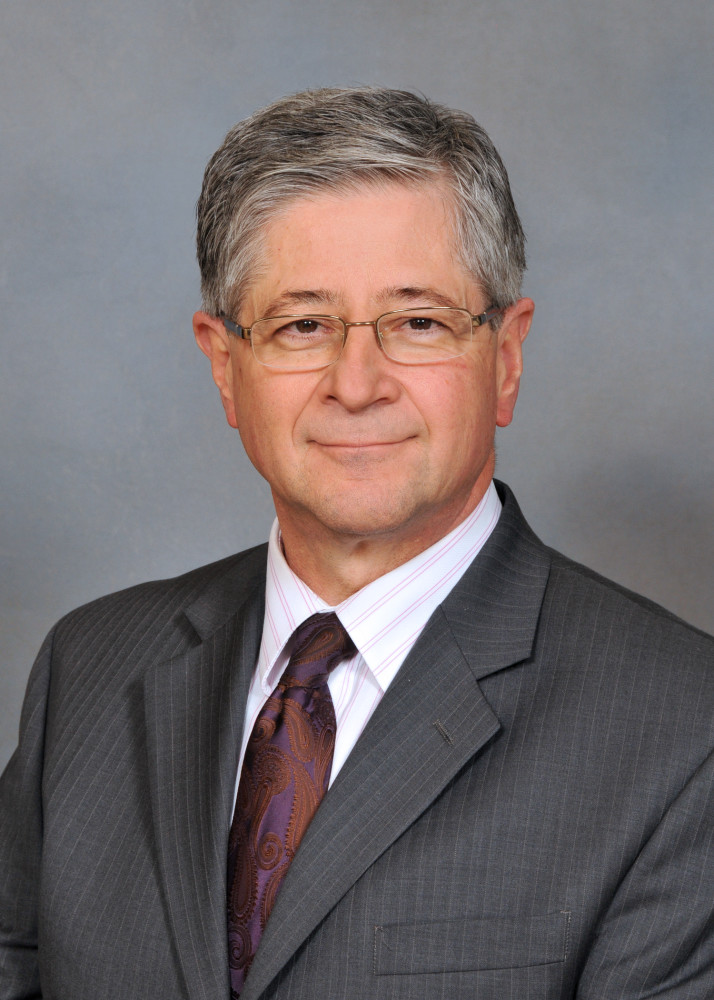
Mr. Bieda has served as primary advocate for ACICS, the largest and oldest nationally recognized accreditor of career colleges and schools, since 2007. He represents the Council in front of policy forums at the state and federal level, particularly focusing on issues regarding the source of accreditation, the process and substance of quality assurance, the metrics of student learning and the relationship between effective career education and workforce readiness. Mr. Bieda has more than 35 years experience as a policy liaison for telecommunications, public higher education, county government and career education. He earned a bachelor’s degree in journalism at the University of Northern Colorado; an MBA in finance at Regis College, and coursework toward a Ph.D. in public policy at George Mason University in Virginia.
He initiated “The Workforce Skills Reality Check,” in 2011, and “The Underemployed Generation” in 2013, seminal research projects commissioned by ACICS to evaluate expectations of contemporary employers and students regarding post-secondary education that leads to relevant employment.
Contact Information: Anthony S. Bieda // Vice President of External Affairs // Accrediting Council for Independent Colleges and Schools // Phone: 202-336-6781 // abieda@acics.org


